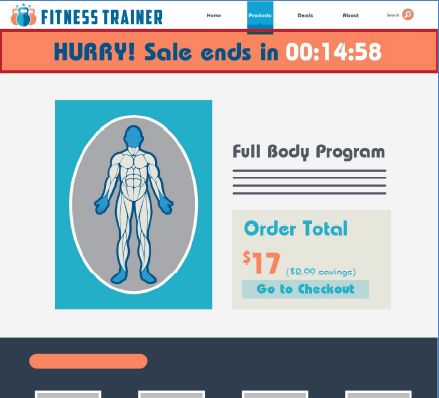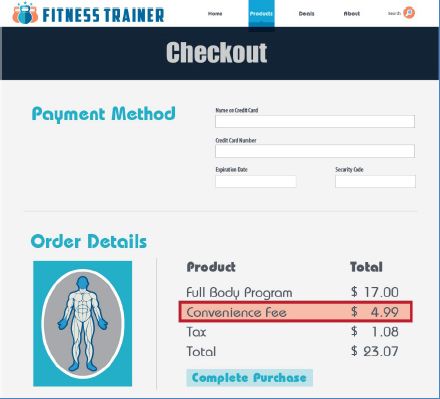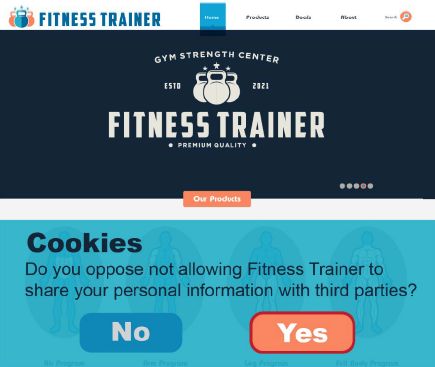Trick or treat? The Federal Trade Commission (FTC) staff is focused on one "trick" this spooky season: Designing user interfaces to trick or manipulate users into taking actions they would not otherwise approve of, or putting obstacles in place to discourage consumers from exercising certain rights. These so-called "dark patterns" are a continued focus of the FTC, as discussed in a prior alert (regarding online subscriptions and e-commerce practices). Dark patterns were also specifically called out in a number of new state privacy laws. A recently released FTC staff report on dark patterns indicates that this focus is only growing, and that dark patterns can encompass a wide range of common marketing practices – from urgency offers to fee disclosures.
Design Elements That Induce False Beliefs
The staff report discusses dark patterns that manipulate consumer choice by inducing false beliefs. These include:
- Advertisements deceptively formatted to look like independent, editorial content
- Purportedly neutral comparison-shopping sites that, in fact, rank companies based on compensation
- Countdown timers on offers that are not actually time-limited
- Claims that an item is almost sold out when there is actually ample supply
- False claims that other people are also currently looking at or have recently purchased the same product
To illustrate, the below includes a baseless countdown timer that pressures users to buy immediately (but the clock just goes away or resets when it times out).

As seen in the FTC's Staff Report "Bring Dark Patterns to
Light,"
September 2022
Companies should keep in mind that they are liable, under the FTC Act, for the net impression conveyed by the various design elements of their websites. When designing user interfaces, companies should consider how those choices affect consumers' understanding of the material terms of the transaction, and not only focus on the effect their design choices have on sales, click-through rates or other profit-based metrics.
Design Elements That Hide or Delay Disclosure of Material Information
The report also discusses dark patterns that operate by hiding or obscuring material information from consumers, such as key limitations and fees. This type of dark pattern includes, for example:
- Hiding limitations behind obscure buttons that consumers are unlikely to click on
- Hiding fee disclosures in un-bolded text, sandwiched between more prominent, bolded paragraphs
- "Drip pricing," where only part of a product's total price is advertised (to lure in consumers), and other mandatory charges are disclosed late in the buying process
The below features drip pricing, as an unexpected convenience fee of $4.99 appears only right before a user checks out:

As seen in the FTC's Staff Report "Bring Dark Patterns to
Light,"
September 2022
Companies should ensure that their material disclosures are clear and conspicuous, and sales practices targeted to a specific audience must take into consideration how their claims and design choices will be perceived by these groups. For example, if a business markets a product to older adults, it should avoid design elements that are harder for older consumers to perceive (e.g., important information hidden at the periphery of the screen or in a light color). Companies should also include any unavoidable and mandatory fees in the upfront advertised price and must not mislead consumers to believe that fees are mandatory when they are not.
Design Elements That Lead to Unauthorized Charges
The report built upon the FTC's Enforcement Policy Statement Regarding Negative Option Marketing and reiterated that the Commission is targeting negative option programs through the Restore Online Shoppers' Confidence Act (ROSCA). ROSCA prohibits charging for goods and services sold over the internet using a negative option feature unless the seller (1) clearly and conspicuously discloses all material terms of the transaction before obtaining the consumer's billing information; (2) obtains a consumer's express informed consent before charging the consumer's account and (3) provides simple mechanisms for a consumer to stop recurring charges.
Importantly, dark patterns can result in violations of each of these requirements by:
- Obscuring material terms (e.g., the fact that a free trial will convert to a paid subscription absent cancellation)
- Misleading the consumer into providing consent by failing to disclose that the consumer is signing up for recurring charges (common among mobile apps that target children, who may believe that they are playing a game, as opposed to making an actual purchase)
- Discouraging or preventing the consumer from canceling the subscription (by making it difficult to find the cancellation option or subjecting the consumer to additional promotions and offers prior to permitting cancellation)
To illustrate, the below includes a hidden subscription; even though the offer is advertised as a free trial, it charges a recurring fee. In addition, users can only cancel by phone, despite being able to sign-up online.

As seen in the FTC's Staff Report "Bring Dark Patterns to
Light,"
September 2022
To help avoid these dark patterns, companies should not hide key terms of a purchase in a general terms and conditions document or behind hyperlinks, pop-ups or drop-down menus. Companies should ensure that they obtain the express informed consent of the accountholder to any charges (particularly for mobile apps and games often played by children, where the accountholder may be a parent or someone other than the child who is playing the game).
Finally, with respect to cancellation, negative option sellers should provide cancellation mechanisms that are at least as easy to use as the method the consumer used to buy the product or sign up for the service – this means that (1) consumers should be able to cancel their subscription through the same medium that the consumer used to sign up for the negative option plan; (2) sellers should not subject consumers to new offers or similar attempts to save the account that impose unreasonable delays on consumers' cancellation efforts; and (3) if the seller provides for telephone cancellation, it should, at a minimum, answer all calls to its cancellation number during normal business hours, within a short time frame, and calls to cancel should not be lengthier or otherwise more burdensome than the telephone call the consumer used to sign up.
Design Elements That Obscure or Subvert Privacy Choices
The report clarifies that dark patterns that obscure or subvert consumers' privacy choices render consumers unaware of the privacy choices they have online or what those choices might mean. These techniques discourage or prevent a consumer from refusing to share data, and include tactics like:
- Repeated prompting to share data
- Confusing privacy settings
- Obscuring the settings to prevent data sharing
- Making sharing data the default setting, or the more prominent choice
The below is an example of design, style and confusing language choices that can manipulate consumers into sharing more information than they may have wanted.

As seen in the FTC's Staff Report "Bring Dark Patterns to
Light,"
September 2022
FTC staff stated that "businesses should, first and foremost, aspire to become good stewards of consumer personal information." In addition to minimizing data collection efforts, businesses should avoid default settings that lead to the collection, use or disclosure of consumers' information in a way that they did not expect, and make consumer choices easy to access and understand. Moreover, choices about sensitive information should be clearly presented (as opposed to a blanket consent), along with any information that users need to make an informed decision (for example, that if the consumer consents to the collection of their information, that information will be shared with third parties).
The content of this article is intended to provide a general guide to the subject matter. Specialist advice should be sought about your specific circumstances.



